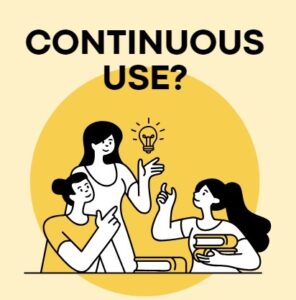The fast developments in AI voice synthesis led to in a revolutionary era in technology: immediate voice cloning. Modern algorithms can now produce a nearly identical replica of an individual’s voice using just a few minutes of their voice recording. Most of us probably have heard a number of songs that include the voice of our Prime Minister; these recreated tracks are a clear example of AI voice cloning. Such technology has allowed creators and businesses to create things like songs, speeches, etc., in the unique yet identifiable voices. It could enhance creative and personalized media but, in doing so, also creates complex ethical and legal difficulties, particularly with respect to copyright, privacy, and personality rights.
Table of Contents
ToggleAI Voice Cloning: Understanding the Technology
Voice cloning is dependent on the cutting-edge of deep learning and machine learning algorithms to analyze an individual’s voice frequencies, tone, and accents. Once those specific characteristics are recorded, they can be reproduced digitally in order to create audio that as closely as possible resembles the original speaker. This feature, when paired up with Speech Synthesis Markup Language (SSML), enables users to personalize aspects like pronunciation, pitch, and speed, making it as realistic and lively a voice as possible, closely identifying with a natural human voice. These are great possibilities, but there is a flip side where this technology can be abused if used without the knowledge of the person whose voice it matches.
The Arijit Singh Case: A Significant Decision on Personality Rights
The recent ruling by the Bombay High Court in favour of Bollywood singer Arijit Singh brought attention to the legal issues surrounding AI voice cloning. The court, in the present case, provided interim relief to Arijit Singh, recognising that his voice, name, and likeness are essential components of his identity, referred to as “personality rights.” Arijit Singh initiated legal action against Codible Ventures LLP, a firm that allowed users to generate content using his voice without obtaining consent. The court’s decision to define the unauthorised use of Singh’s voice as a violation of his rights sets an important precedent. It emphasises that an individual’s voice, much like their name or image, is an integral aspect of their identity and is protected under personality rights.
The court acknowledged Singh’s status as a well-known and influential artist, pointing out his reputation and goodwill in India. The court highlighted that previous cases concerning personality rights indicate that using a celebrity’s voice or personal traits for commercial gain without permission constitutes a clear violation of those rights. This ruling clearly suggests that tools that allow for the generation of content in a celebrity’s voice without their permission infringe upon their rights and pose risks to their economic and public standing.
Legal Considerations: Copyright, Personal Rights, and More
The decision involving Arijit Singh carries major consequences for several legal concepts, such as copyright, intellectual property, and personality rights.
1. Personality Rights: This case highlights that a celebrity’s name, voice, and likeness are integral parts of their personal brand and identity. Protecting these rights stops illicit third parties from profiting off someone else’s identity and plays a crucial role in protecting their career and livelihood.
2. Copyright and Ownership: The complexities of ownership arise when dealing with AI-generated content that utilises cloned voices. Is the voice model subject to copyright protection, and who holds the legal rights to the content generated with that voice? When a voice model originates from a public figure, the boundaries of copyright law can become vague. It raises questions about who actually holds the rights: the creator, the individual whose voice is replicated, or the developer of the AI.
3. Economic and Reputational Concerns: The unauthorised use of a prominent voice can have adverse impacts on the person’s professional life. In Singh’s situation, his reputation and popularity render his voice a crucial element of his personal brand. The court’s decision recognises the potential harm that unauthorised use of his voice may pose to his professional standing and revenue.
4. Right to Publicity: This case expands the idea of an individual’s control over the commercial use of their identity. With the growing ease of AI voice cloning, it is becoming more vital to safeguard individuals against the unauthorised use of their identity. This acknowledgement offers a foundation for protecting people’s identities and personal characteristics in the era of AI.
Setting Standards for AI Voice Cloning
The Arijit Singh case highlights the pressing need for well-defined and thorough regulations concerning the commercial application of AI voice cloning technology. Considering the possibility of misuse, here are some suggestions to tackle these challenges:
Explicit Consent Requirements: The use of an individual’s voice or likeness must obtain clear, documented consent, especially when it pertains to commercial purposes.
Transparency: Informing consumers about the use of an AI-generated voice is crucial to prevent any potential misunderstanding, particularly when the cloned voice closely resembles a well-known individual.
Defining Usage Boundaries: Setting clear boundaries between personal and commercial applications can help prevent misuse while allowing individuals to utilise the technology for their own non-commercial purposes.
Conclusion
This ruling by the Bombay High Court, giving practical effect to Arijit Singh’s right over his voice, is a positive balancing act between harnessing the modern technology of AI voice cloning and protecting individual rights. Considering the new technology of voice synthesis, society must develop legal protections against the appropriation of one’s voice, name, and likeness. This ruling is a landmark case in that it shows how the law can adapt to emerging technology and preserve innovation while ensuring the protection of individual rights against invasive practices. Such frameworks will be critical to ensure the responsible use of this powerful tool, prevent misuse, and safeguard individual identities as we explore its potential further.





